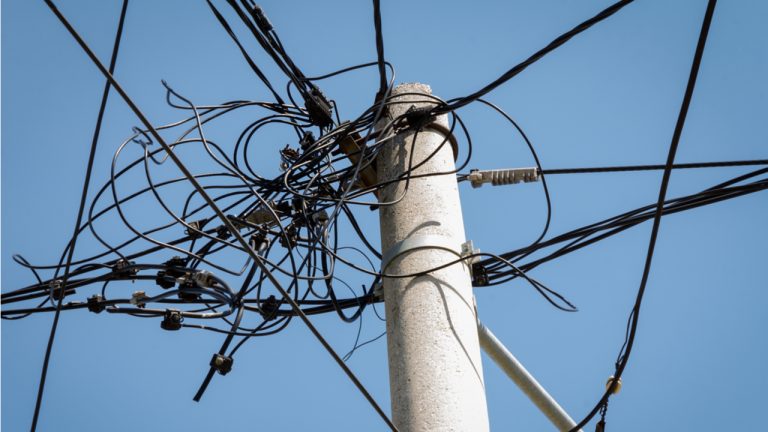The growth of illegal bitcoin mining operations could affect the stability of the power system in Paraguay, according to statements from the National Power Administration. The boom the country is experiencing is taking its toll on the power system, with many miners plugging in illegally and consuming high amounts of power without making payments.
Paraguay Underground Mining Operations Grow
Paraguay’s popularity as a country with cheap power tariffs for bitcoin mining is hurting the electric grid and might work against the stability of the power system in the country. ANDE, the National Power Administration, declared on Oct. 28 that the recent boom in bitcoin mining has caused power consumption for the department of Alto Parana to grow immensely, with many operations connecting illegally to the grid.
According to Miguel Angel Baez, technical director of the ANDE organization, this has prompted the group to step up vigilance in the zone, ramping up supervision operations to detect covert connections on the border with Brazil.
However, Baez states that when the company detects and disconnects an operation, another two appear. Each one of these covert operations can reportedly use the energy equivalent of what an apartment complex consumes in one day.
This situation is not new to the area. The National Power Administration previously disconnected power to some miners that had committed power-related crimes. In Aug., Alfredo Arguello, head of the East Regional Management Division, stated that they had detected irregularities, including direct connections, bypass connections, and modified power meters, during supervision visits. The losses as a consequence of these irregularities reached $400,000 monthly.
Special Bitcoin Mining Fees
The situation in the sector prompted the National Power Administration to oppose the fee suggested in a proposed cryptocurrency bill, which established the maximum fee to be only 15% higher than what is collected from other equivalent companies. At that time, the organization stated it would support a possible veto of the law due to that consideration, and propose a new set of power fees.
The cryptocurrency bill, which would come to bring more clarity to the bitcoin mining industry, was vetoed by president Mario Abdo on Sep. 2 on the grounds that it was an energy-intensive activity that presents little demand for labor. The veto was rejected by the Paraguayan senate on Sept. 30, with the Congress making moves to pass the bill without presidential support.
Even with this happening, Paraguay is still deemed an attractive destination for bitcoin mining companies. On Oct. 14, Pow.re, a bitcoin mining company, announced that it had started the construction of two mining facilities in the country that will manage 12 megawatts (MW) of hydroelectric power.
What do you think of the warning about the rise of underground illegal mining operations in Paraguay? Tell us in the comments section below.














